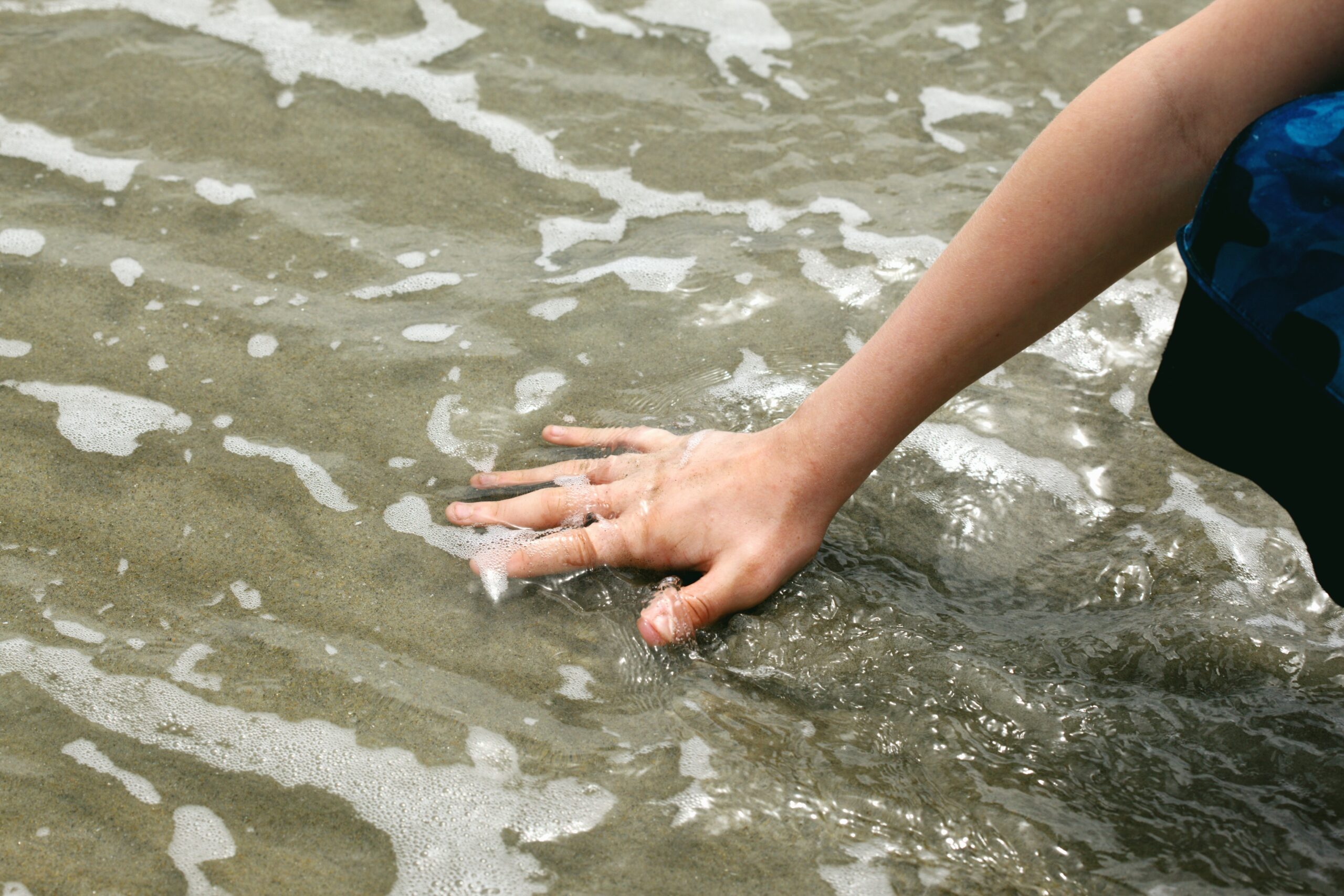Our senses
«Please do not touch or please do not take this in your mouth». These are requests that we make often or even too often in everyday life. The child does not understand why we are interrupting its discovery tour. It just wanted to perceive how the wooden building block felt in its mouth. It wanted to explore what happens to the wet earth when it squeezes it. It wanted to explore what happens to the wet earth when it squeezes it. Does the earth then turn into plasticine and can the child use it to construct something? These are thoughts that children have and questions that children ask themselves as they try to gain new experiences and new knowledge. We educators or parents interrupt the child in such an important moment. Of course, we only want to protect the child and the child should not just eat everything or put it in his mouth. However, we often forget how important these experiences are for the child’s development, especially in the first 2 years of life. What can we do to support the children in their sensory experiences?
We would like to take a closer look at the individual senses and share our thoughts on how we can stimulate them.
Sense of touch
The sense of touch is the most comprehensive sensory organ of our body. Although we often associate the sense of touch only with the hands, touching the whole body is part of it. It is important to offer the children different perception games for this.
Our funding ideas:
- Offer the children barefoot baths.
- Also, sensory baths for the whole body (fill a large bath shell with leaves, nuts and other natural materials).
- Create touch memories and support the children in their play.
- Let babies play with different objects so that they can perceive and feel the different materials.
Sense of hearing
The sense of hearing is one of the senses that is well developed from birth. The spatial hearing can only be trained with experience. To strengthen the sense of hearing we can do many different games with the children.
Our funding ideas:
- Playing with rattles or making your own rattles.
- Listen to audio stories.
- Create a sound memory and play together.
- Offer musical toys made from everyday objects, e.g., create a drum set from pans and ladles.
- Go on nature walks.
Sense of smell
Although various odors are constantly in the air, we usually do not even consciously perceive them. We usually only notice odors when they smell particularly positive or negative. We also find it difficult to describe and define odors. It is important that we all have our own olfactory experiences.
Our funding ideas:
- Making smelling bags: Fill a cloth or plastic bag with strong-smelling food or plants (e.g., wintertime with oranges, cinnamon, apple, etc.).
- Making olfactory memory
- Spending time in the garden or otherwise outdoors, as the smells are most intense there.
- Offer bubble baths with special scents.
- Provide essential oils with various fragrances.
- Cooking together and smelling the spice.
Sense of taste
Due to the many finished products, we encounter in stores today, conscious tasting is increasingly being lost. Such foods can weaken our sense of taste.
Our funding ideas:
- Helping with cooking, tasting the food before and after.
- Try food blindfolded and guess what we ate.
- Testing new foods, e.g. very sour, very sweet, very spicy.
Sense of sight
The visual stimuli are not perceived in the same way as adults from birth. Visual ability is not developed until play school.
Our funding ideas:
- Offer color games.
- Look at hidden object books together and search for specific figures or objects.
- Play the game «I see something you don’t see» together.
- Find differences in two identical pictures.
Chiara Guglielmo, deputy site management, Nursery Zug
Photo by Sharon McCutcheon on Unsplash



